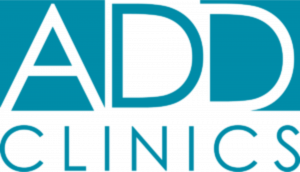
Managing Finances with ADD: Understanding Challenges and Effective Strategies
Dr. Stanford Owen, owner of ADD Clinics in Gulfport, Mississippi, explains that ADD affects executive functioning, which is responsible for skills like planning, prioritization, and impulse management. “These deficits can make it difficult for individuals with ADD to create and stick to a financial plan. Identifying challenges and building structured habits can reduce stress and improve financial management outcomes.”
Financial Challenges for Individuals with ADD
ADD impacts several aspects of life, including financial management. Individuals may experience common issues that affect their ability to handle money effectively:
Lack of Focus on Financial Tasks
Staying organized and focused on routine financial responsibilities, like tracking expenses or managing budgets, can be particularly difficult. Tasks that involve long-term planning or tedious details often feel overwhelming and are avoided or forgotten.
Impulse Spending
Impulse control can be a significant challenge for individuals with ADD. Unplanned purchases, whether small or large, can quickly derail a budget. Shopping can also serve as a way to cope with stress or boredom, creating further financial strain.
Difficulty Meeting Deadlines
ADD can interfere with time management, making it hard to remember due dates for bills, loan payments, or financial milestones. Missed payments may result in late fees, penalties, and damaged credit scores, creating long-term consequences.
Avoidance of Financial Planning
Tasks like creating budgets, reviewing bank statements, or setting financial goals often feel daunting. Procrastination may lead to a lack of financial awareness, increasing the likelihood of overspending or neglecting important obligations.
Disorganization
Individuals with ADD may struggle to maintain an organized system for managing financial documents. Receipts, bills, and account information may be misplaced, making it harder to stay on track and resolve issues when they arise.
Strategies for Financial Management with ADD
While ADD presents specific challenges, implementing structured strategies and developing new habits can significantly improve financial management.
1. Automate Financial Tasks
Automating recurring payments, such as rent, utilities, and credit card bills, reduces the risk of missed deadlines. Online banking tools allow payments to be scheduled automatically, minimizing the need for constant reminders.
2. Use Visual Tools for Budgeting
Traditional budgeting methods may feel cumbersome for individuals with ADD. Using visual tools, like spreadsheets with color-coded categories or budgeting apps with graphs and notifications, simplifies the process. Visual cues can help individuals see where money is going and stay motivated to meet financial goals.
3. Break Financial Tasks into Small Steps
Breaking down larger financial responsibilities into smaller, manageable tasks can make them feel less overwhelming. Instead of tackling an entire budget in one sitting, focus on one step at a time, such as reviewing expenses for the month, listing bills, or creating a savings plan.
4. Set Up Reminders and Alarms
Technology can help individuals stay on top of financial responsibilities. Setting calendar alerts, phone reminders, or alarms for due dates and important tasks creates structure and accountability.
5. Create Spending Rules
To manage impulse spending, creating specific rules for purchases can provide a helpful framework. For example, wait 24 hours before buying non-essential items or establish a monthly spending limit for discretionary purchases. This strategy helps reduce unplanned expenses and creates awareness of spending habits.
6. Design a Simple System for Organization
Organizing financial documents does not have to be complicated. Designate one spot—such as a folder, drawer, or digital app—for storing bills, receipts, and account statements. Consistently using the same system prevents paperwork from becoming scattered or lost.
7. Schedule “Financial Check-Ins”
Setting aside a specific time each week to review finances creates a routine that reinforces accountability. During these check-ins, review balances, upcoming bills, and spending habits. Keeping these sessions short and focused makes them less intimidating.
8. Seek Support When Needed
Working with financial advisors, therapists, or ADD specialists can provide valuable tools and accountability. External support can help identify barriers, establish new systems, and develop strategies tailored to an individual’s needs.
The Role of Structure in Financial Success
For individuals with ADD, building financial stability relies on creating systems that minimize the impact of disorganization, procrastination, and impulsivity. The key to success is introducing structure into daily routines and financial habits. For example:
Setting specific days each month to review accounts and track spending.
Using budgeting tools that automatically sync with bank accounts.
Breaking larger goals, like saving for a vacation or paying down debt, into smaller, achievable milestones.
This approach helps individuals with ADD overcome common obstacles by creating accountability and reducing stress around financial management.
Long-Term Benefits of Financial Management
Managing finances effectively is essential for long-term stability and peace of mind. For individuals with ADD, implementing structured habits provides more than just financial security—it reduces anxiety, builds confidence, and creates greater independence.
By addressing challenges with focus, organization, and impulsivity, individuals can develop systems that work for them. Over time, consistent financial habits lead to greater control over expenses, fewer unexpected setbacks, and the ability to meet short- and long-term financial goals.
Conclusion
Managing finances with ADD can be challenging, but it is far from impossible. By implementing strategies like automation, visual tools, reminders, and structured routines, individuals can overcome barriers to financial organization and success. Recognizing the connection between ADD and financial habits allows individuals to develop systems tailored to their needs, helping them stay on track and reduce stress around money management.
Taking control of finances is not about perfection—it is about consistency, structure, and building habits that make financial management more manageable and effective.
Morgan Thomas
Rhino Digital, LLC
+1 504-875-5036
email us here
Visit us on social media:
Facebook
Distribution channels: Culture, Society & Lifestyle, Healthcare & Pharmaceuticals Industry
Legal Disclaimer:
EIN Presswire provides this news content "as is" without warranty of any kind. We do not accept any responsibility or liability for the accuracy, content, images, videos, licenses, completeness, legality, or reliability of the information contained in this article. If you have any complaints or copyright issues related to this article, kindly contact the author above.
Submit your press release

